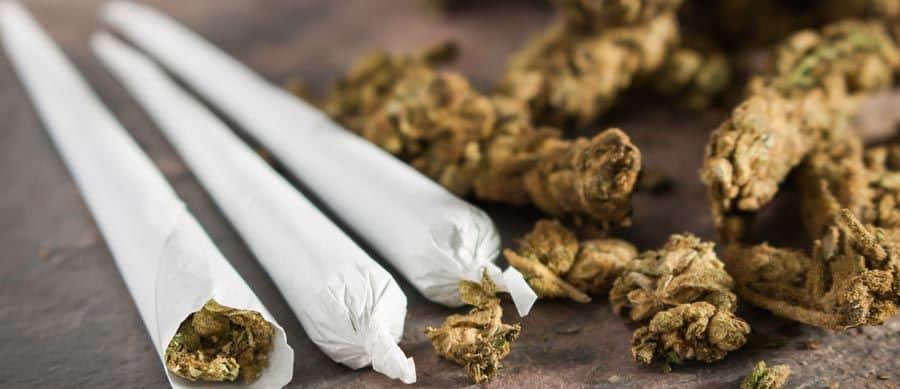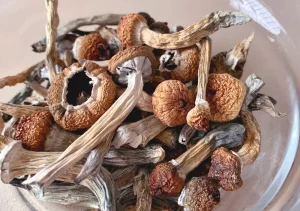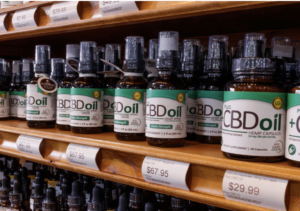These days, a lot of people are looking into using cannabis (aka marijuana) for medical purposes to treat their different health issues. However, the research on how well it actually works is pretty limited. Cannabis contains compounds like THC, which gets you high, and CBD, which doesn’t cause that high feeling but could influence THC’s effects. Even though cannabis comes from a plant, using it medicinally doesn’t make it risk-free. ‘Here’s what we know about medicinal marijuana and how to know if you or someone is developing a marijuana addiction problem.
What is Medical Marijuana?
It is a cannabis (the marijuana plant or its extracts) used to help treat diseases and ease symptoms, not to get anyone high recreationally. It comes from the same plant as a regular weed but is taken as pills, oils, or vapour instead of smoking, and contains active compounds like THC and CBD that interact with the body’s systems.
Medical cannabis is legal in many U.S. states when recommended by a doctor for approved qualifying conditions like cancer, chronic pain, epilepsy, etc. Cannabis products are precisely dosed to maximize therapeutic effects while minimizing mild-altering side effects.
How To Get Medicinal Marijuana Legally
With a state-issued cannabis card, you gain legal access to dispensaries that offer various cannabis products. Depending on your location, having this card may permit you to purchase higher-potency items or larger amounts. In certain states, you could even cultivate plants at home for personal use if approved. The available forms include oils, topicals, capsules, tinctures, smokable flowers, and sprays. You can either consume these products yourself or designate a caregiver to assist if listed on your card. The onset time and duration of effects hinge on the specific product and the severity of your condition.
Who Can Prescribe the Medication?
Doctors cannot directly give patients marijuana like normal medicine prescriptions. But in states where it’s legal, doctors can provide patients with approval to use marijuana for medical reasons. First, the doctor checks if the patient has a medical issue such as Alzheimer’s, ALS, HIV/AIDS, Crohn’s disease, epilepsy, glaucoma, multiple sclerosis, chronic pain, and severe nausea/vomiting from cancer treatment that research says marijuana might help with. The doctor also makes sure the patient already tried other regular therapies that didn’t work for their condition. After looking at the patient’s situation, the doctor can then approve the patient to get medical marijuana from allowed places in that state legally. They keep an eye on the patient’s treatment plan.
Can You Get Addicted to Medical Cannabis?
Yes, it is possible to become addicted to medical cannabis. While not as habit-forming as some other substances, cannabis can still create a physical and psychological dependence in some people, especially with frequent long-term use. An addiction is characterized by intense cravings, inability to cut back despite negative impacts, and withdrawal symptoms when trying to quit. Research shows that around 9% of cannabis users may develop some degree of addiction. Contributing factors include genetics, potency of the cannabis, and frequency of use. So, while cannabis has medical benefits, users should still be aware of the potential addiction risk.
5 Signs of Marijuana Addiction
Marijuana is extremely popular and commonly used across the United States. However, frequently smoking cannabis can lead to major negative impacts on someone’s physical and mental health, as well as other detriments in their day-to-day life. There are certain behaviours and patterns that can signal when a person’s marijuana use has become a problematic addiction.
-
Can’t Stop the Urge
Someone addicted to marijuana feels an extremely powerful urge or craving to smoke weed, even when it’s inappropriate or inconvenient. It becomes something they crave intensely, and they have difficulty controlling the desire, similar to an intense hunger. These urges can make them act recklessly to get marijuana.
-
No Longer Enjoy Usual Activities
When marijuana becomes the biggest priority, addicted people tend to lose interest and quit participating in other activities and hobbies they previously enjoyed. Things like sports, hanging out with friends, creative hobbies – they drop those meaningful parts of life because smoking weed has become the main driving force.
-
Experience Withdrawal Effects
If a frequent, heavy marijuana user suddenly stops, they may experience withdrawal effects like irritability, insomnia, decreased appetite, and restlessness. Feeling physically and psychologically uncomfortable when not using the drug can reinforce the addictive cycle. It’s a sign the brain has become dependent on marijuana.
-
Need More to Feel the Same Way
Over time, someone addicted builds up a tolerance, requiring larger and larger amounts of marijuana to achieve the same desired effects or “high” feelings. This is because their brain has become accustomed to high doses. Continually needing to use more can indicate an addictive pattern.
-
Keep Using Despite Negative Impacts
Despite racking up negative life consequences from marijuana addiction like struggles with memory, focus, paranoia, psychosis risk, lower grades/intelligence, job problems, and money issues, the addicted person continues using anyway. The compulsive need to keep using marijuana overpowers the rational decision to quit, even when seeing harm.
What Is the Danger of a Medical Cannabis Addiction?
While medicinal marijuana can provide relief for certain conditions, there are potential dangers associated with its long-term or excessive use, such as:
- Risk of weight gain from excessive eating.
- Experiencing feelings of paranoia.
- Episodes of memory loss or blackouts.
- Difficulty retaining information.
- Increased likelihood of respiratory and lung issues.
- Sudden onset of panic attacks without a clear cause.
Recognizing the signs of overuse or dependence on medical marijuana is important in mitigating these potential dangers.
Conclusion
Medicinal marijuana can be beneficial for certain health conditions when used properly under medical supervision. However, it’s important to be aware that even medical cannabis carries the risk of addiction. Using cannabis responsibly and watching for any signs of dependence or overuse will allow patients to experience the potential benefits while avoiding harmful consequences. You need to stop if you think you’re developing a problem with it.




